1990
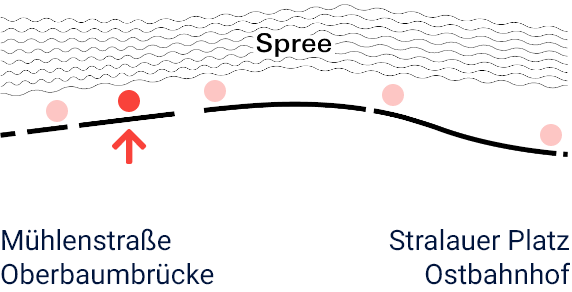
1990 brought major upheavals and changes. In East Germany, the introduction of market economy and parliamentary democracy affected many areas of life; the way society was organised changed profoundly. People were forced to completely readjust. But even in West Germany, economic questions rose in importance and social reform projects were shelved. Everyday life changed in both parts of Berlin.
"Suddenly I can go wherever I like. If I have the money."
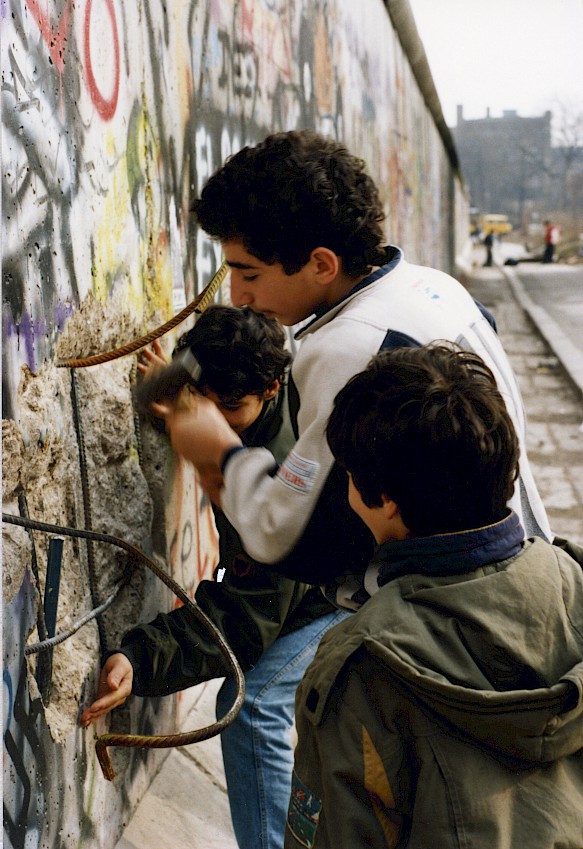
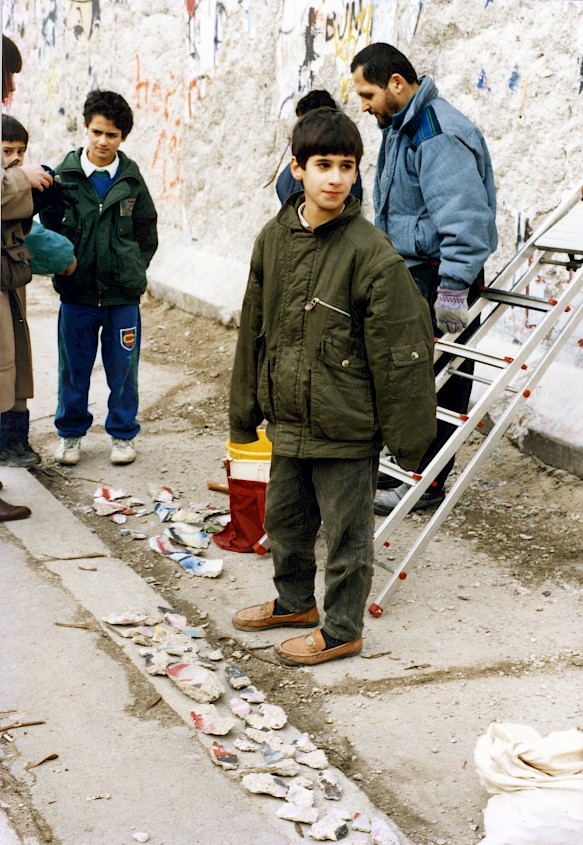
"What comes now won’t be easy."
When the Wall was opened and economic and monetary union with West Germany introduced, life in East Germany changed abruptly. Rents increased, state-owned enterprises were privatised, and many people lost their jobs. The life’s work of East Germans up to that point — including education and training, time spent raising children, and any oppositional or artistic involvement — now counted for almost nothing, financially and socially. A sense of being written off hit many East Germans hard and continues to affect some families today. It was especially hard for people from abroad who lived or studied in the GDR. They had to fight for their right to stay.
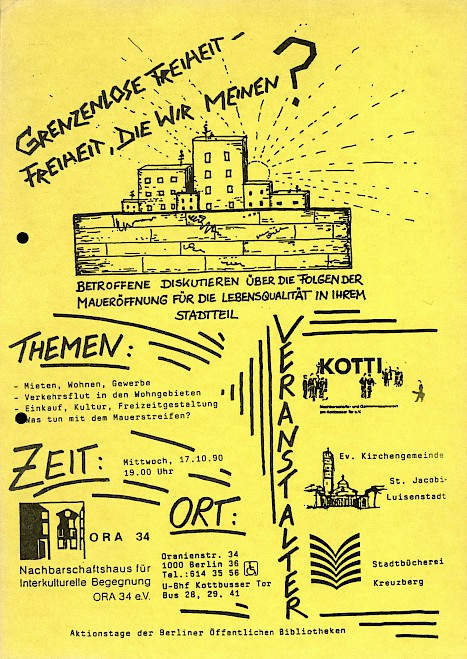
West Berlin changed, too, due to the fall of the Wall and unification. The Berlin subsidy was abolished, causing companies to reduce their output or close down completely. Migrant workers were laid off in especially high numbers.Many then set up their own businesses, such as bakeries, groceries, and kiosks. They have become a distinctive feature of Berlin’s cityscape.
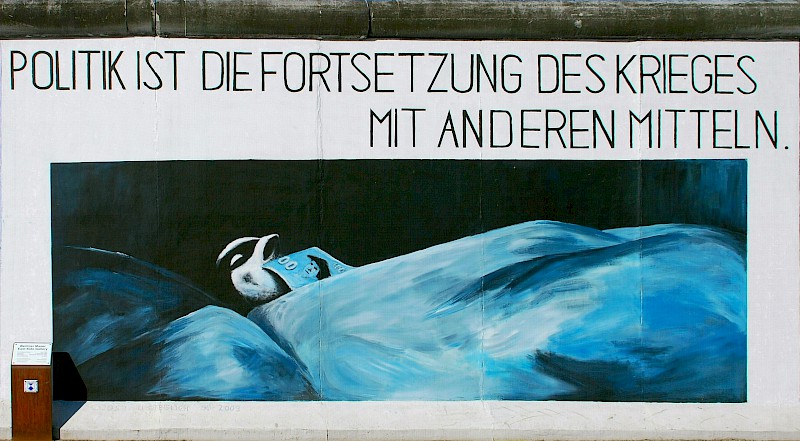
The East German theology student Carsten Jost was glad about the new freedoms in 1989. But he did not see all the changes as positive. His painting portrays the price to be paid for changing the system from one steered by communist ideology to one driven by monetary concerns. The title (Politics is the continuation of war by other means) paraphrases a quote by Prussian military leader and theorist Carl von Clausewitz as well as alluding to the 100 DM welcome money that GDR citizens received when they went to West Germany until the end of 1989.